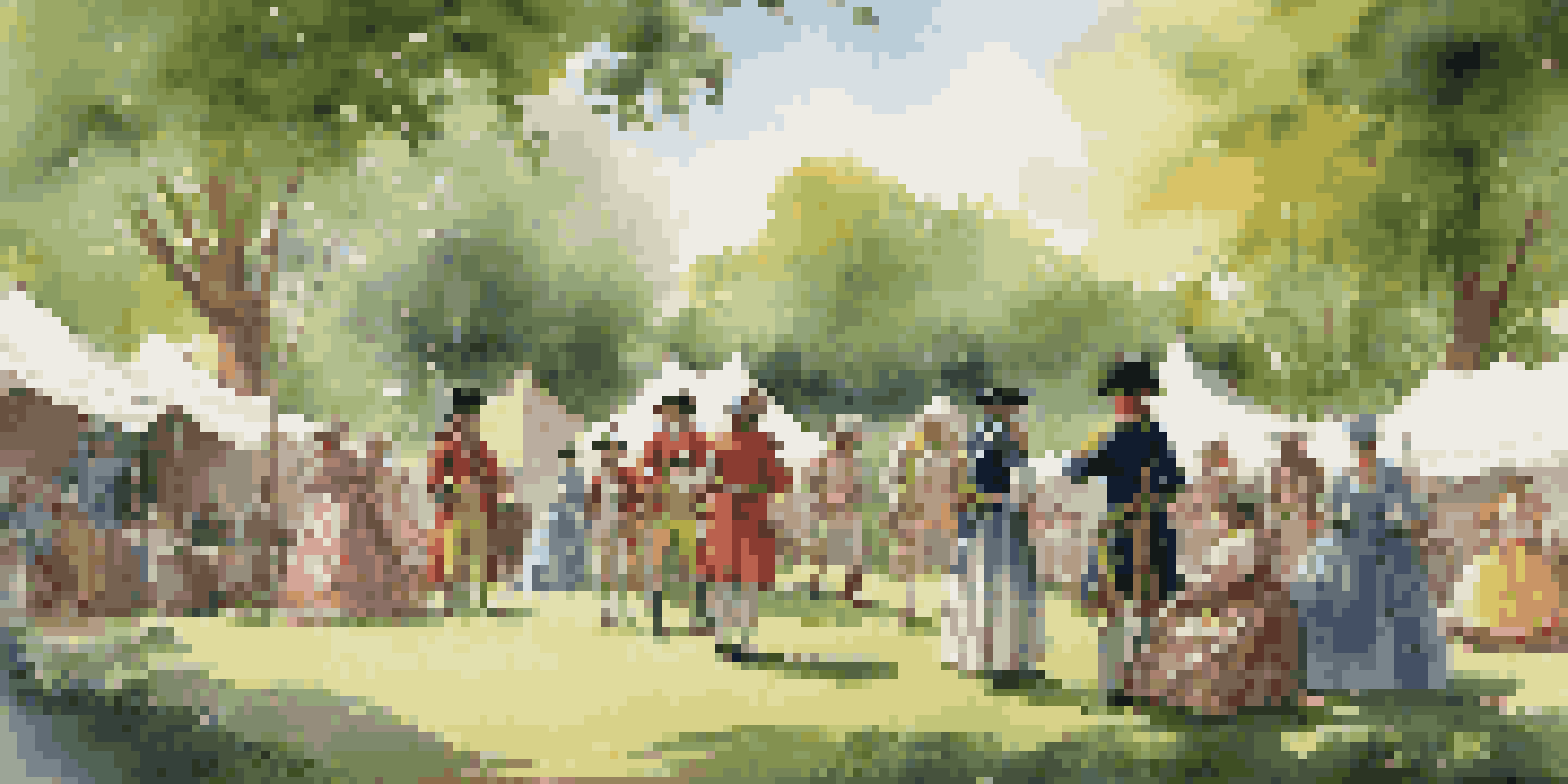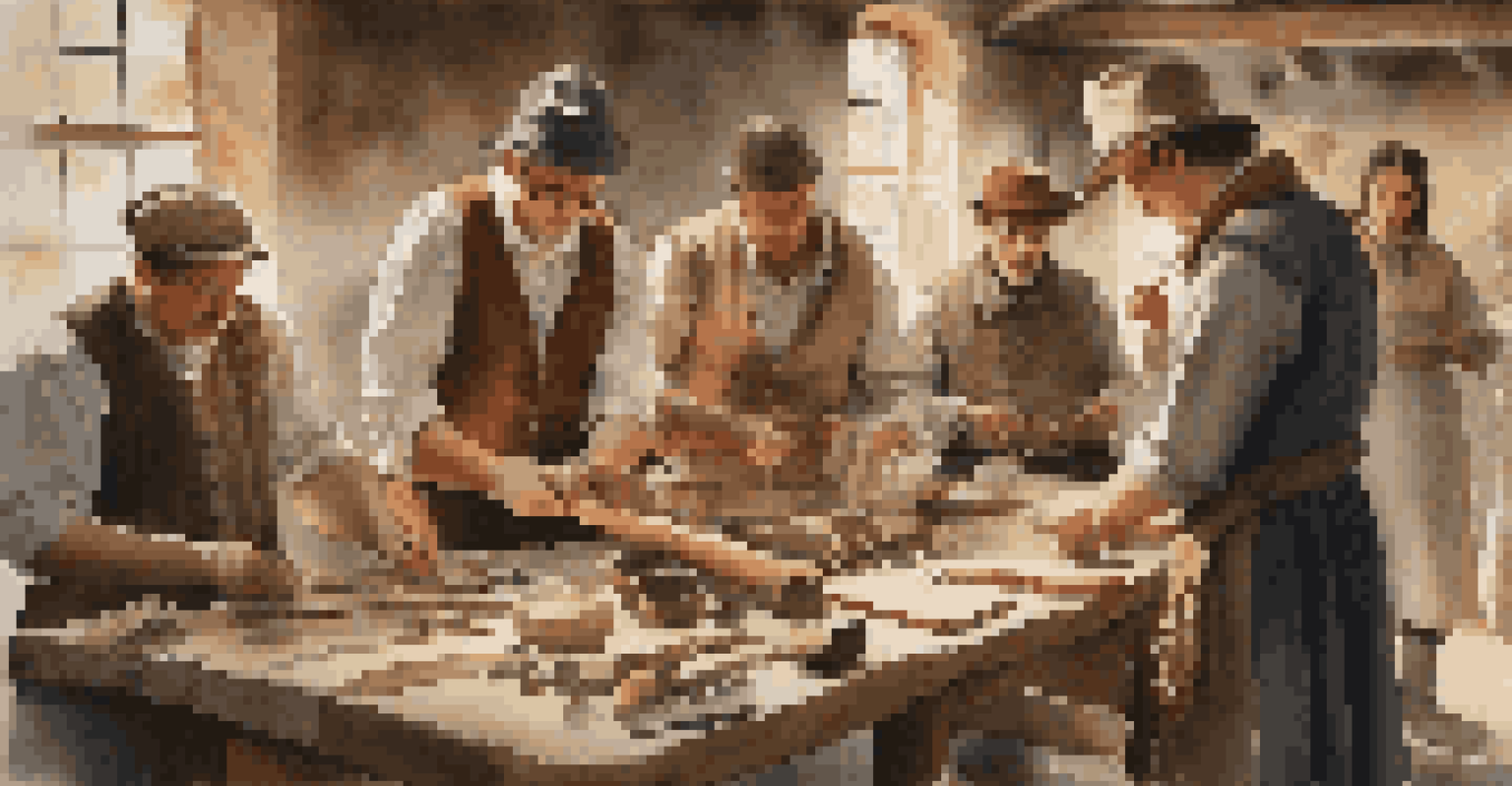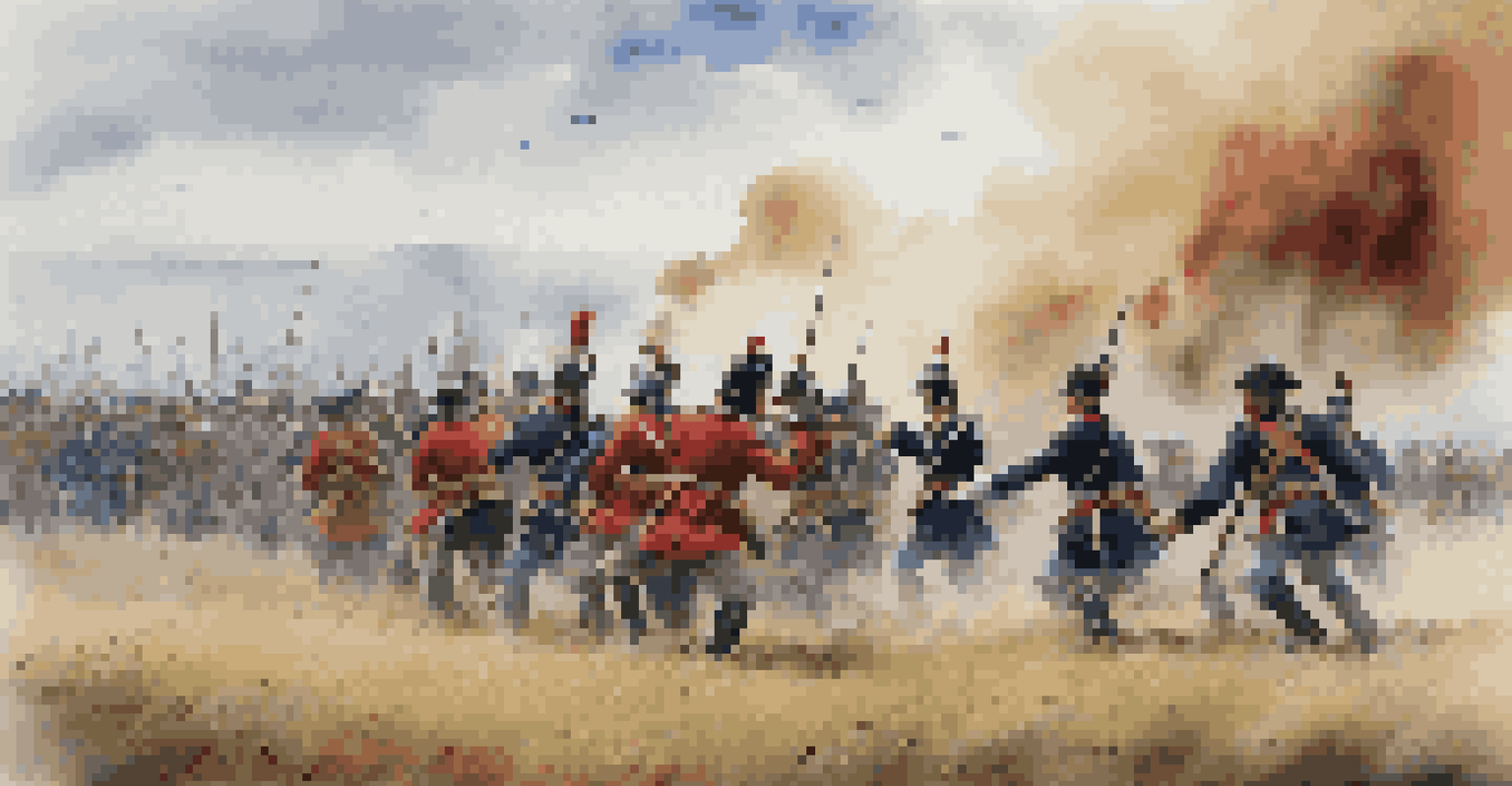Community Engagement Through Historical Reenactment

Understanding Historical Reenactment and Its Purpose
Historical reenactment involves recreating past events for educational and entertainment purposes. Participants dress in period costumes and act out significant moments in history, allowing audiences to witness history in action. This immersive experience can spark interest in history and encourage deeper exploration of the past.
History is not a burden on the memory but an illumination of the soul.
At its core, reenactment is more than just a performance; it’s a community-driven effort that often includes research and collaboration. Participants may gather to study historical documents, artifacts, and oral histories, ensuring their portrayals are as accurate as possible. This commitment to authenticity helps foster a sense of shared purpose among reenactors.
Through reenactments, communities can celebrate their heritage and connect with local history. By bringing people together to explore shared stories, these events can strengthen community bonds and instill pride in local cultures.
Building Community Through Shared Experiences
One of the most significant benefits of historical reenactment is its ability to create shared experiences among community members. When individuals come together to participate, they forge connections that may not have existed otherwise. These interactions can lead to lasting friendships, as participants bond over their shared passion for history.

Moreover, reenactments often attract diverse audiences, inviting families, students, and history enthusiasts to witness the events. This inclusive atmosphere fosters dialogue and encourages participants to share their own stories and insights, enriching the overall experience for everyone involved. It’s a wonderful way for communities to come together in a spirit of curiosity and learning.
Reenactment Fosters Community Bonds
Historical reenactments create shared experiences that connect participants and strengthen community ties.
Additionally, by inviting local residents to engage with these historical portrayals, reenactments can spark interest in local history. This encourages residents to explore museums, archives, and other historical sites, further deepening their connection to the community.
Educational Benefits of Historical Reenactment
Historical reenactment serves as a powerful educational tool, helping to bring history to life for participants and spectators alike. By immersing themselves in specific time periods, individuals can gain a deeper understanding of historical events and their significance. This experiential learning can be far more impactful than traditional classroom methods.
The past is never dead. It's not even past.
Moreover, reenactments often include workshops and discussions led by experts, giving participants the opportunity to learn from historians and educators. These interactions can enhance knowledge and inspire further exploration of historical topics. Participants may leave with a newfound appreciation for the complexities and nuances of their heritage.
Additionally, reenactments can help to highlight lesser-known events and figures in history, providing a broader perspective on the past. By showcasing diverse narratives, reenactments can foster empathy and understanding among audiences, ultimately helping to create a more informed and engaged community.
Promoting Cultural Heritage and Preservation
Historical reenactment plays a crucial role in promoting cultural heritage and preservation. By showcasing traditional practices, crafts, and stories, reenactors help to keep these aspects of history alive for future generations. This not only preserves cultural identity but also enriches the community's understanding of its own roots.
Moreover, reenactments often involve collaboration with local historians, artisans, and cultural organizations. This partnership can lead to increased awareness and appreciation for local heritage, encouraging community members to take pride in their history. It also provides a platform for sharing valuable knowledge and skills related to traditional crafts and practices.
Engaging Education Through Immersion
These events serve as powerful educational tools, bringing history to life and deepening understanding through experiential learning.
As communities engage with their history through reenactment, they create a living narrative that honors the past. This ongoing connection to cultural heritage fosters a sense of responsibility and stewardship, motivating individuals to advocate for the preservation of historical sites and traditions.
Economic Impact of Historical Reenactment Events
Beyond the social and educational benefits, historical reenactments can have a significant economic impact on communities. These events often attract visitors from outside the area, providing a boost to local businesses such as restaurants, hotels, and shops. This influx of tourists can create new opportunities for entrepreneurs and support the local economy.
Moreover, historical reenactments can create jobs and volunteer opportunities for community members. Organizers may hire individuals to assist with logistics, marketing, and other event-related tasks, while volunteers can gain valuable experience and skills. This collaboration can strengthen community ties and promote a sense of ownership over local events.
By investing in historical reenactments, communities can create long-term benefits. The increased visibility of local history can lead to the development of heritage tourism, attracting even more visitors and creating sustainable economic growth.
Challenges Faced by Historical Reenactment Groups
While historical reenactment has many benefits, it also comes with its own set of challenges. Organizing events requires significant time, effort, and resources, which can sometimes be difficult for volunteer-based groups. Fundraising for costumes, materials, and venue rentals can be a daunting task, often relying on community support.
Additionally, maintaining historical accuracy can be a contentious issue among reenactors. Disagreements may arise over specific details, such as clothing styles or event interpretations. These discussions, while valuable for the learning process, can sometimes lead to tension within groups, making collaboration challenging.
Economic Benefits of Reenactments
Historical reenactments can boost local economies by attracting tourists and creating job opportunities for community members.
Finally, attracting new participants can also be difficult, especially as interests shift with younger generations. Reenactment groups need to find innovative ways to engage diverse audiences and ensure that their events remain relevant and appealing to a wider demographic.
The Future of Community Engagement in Reenactment
As society evolves, so too does the practice of historical reenactment. Future engagement may involve incorporating technology, such as virtual reality or interactive exhibits, to enhance the educational experience. This could attract younger audiences, making history more accessible and engaging for all.
Moreover, communities may increasingly focus on inclusivity in reenactment, highlighting diverse perspectives and narratives that reflect the complexities of history. This shift can foster a greater sense of belonging and understanding among participants and audiences, creating a richer tapestry of historical representation.

Ultimately, the future of community engagement through historical reenactment seems promising. By adapting to changing interests and embracing new ideas, reenactment groups can continue to strengthen community ties and promote a deeper appreciation of history for generations to come.